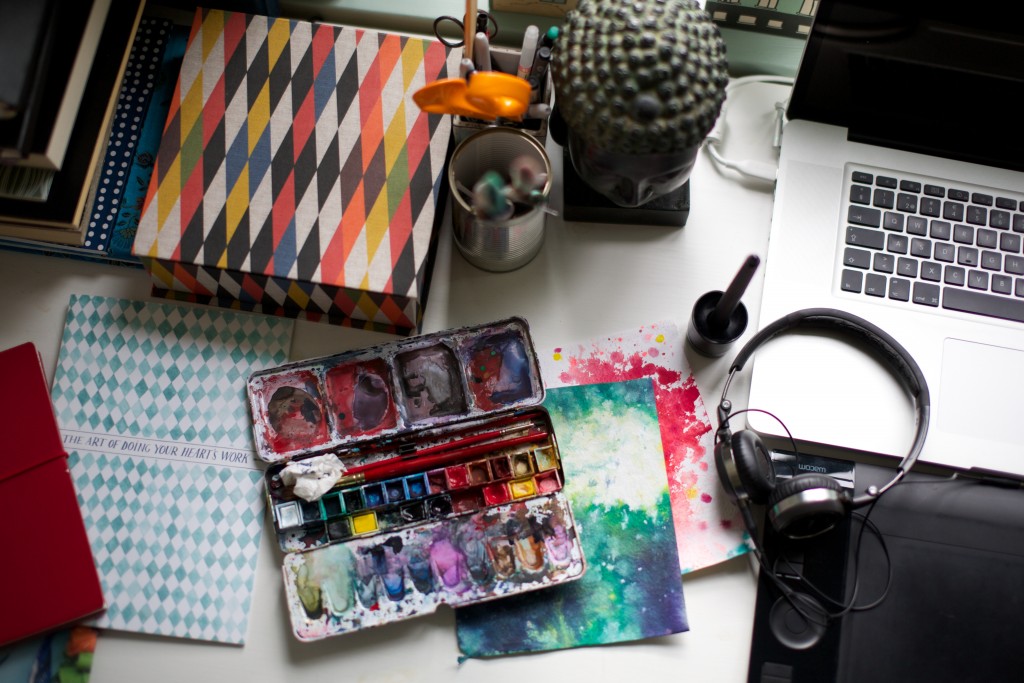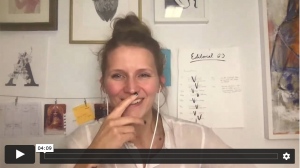
Photo: Amrit Daniel Forss
I started my first business in the midst of absolute chaos.
The debris from my collapsed marriage was still flying in the air, I was struggling to finish my MA in Publishing, I had a two year old to support, no income, no savings and wobbly self-confidence. I lived in a small town and had no professional network to speak of. Certainly none relevant to the publishing business, which was—and still is—located in the big cities.
Not exactly the perfect conditions for starting a business.
Or was it?
With a little perspective, I think I probably needed that amount of pressure to get going. Had there been an easier, more comfortable option within reach, I would have grabbed for it. But there wasn’t.
So I moved to the big city. I brought the kid, signed a lease on a tiny apartment and started consulting. My then ex-husband lent me enough money to last me four months, if I saved and scraped. The thought of what would happen after those four months was not even allowed into my head. There was no plan B.
That fall I worked harder than I ever had before. I said yes to anything that came my way. I wrote copy, I coached writers, I edited. Do you translate? Sure. Legal documents? No problem.
I won’t tell you how many hours it took me to translate that first contract between an American steel corporation and its Swedish supplier. Not to mention how deadly boring it was. But I did it. I delivered, I invoiced, and grew a little every time.
I grew confident enough to say yes when I was asked to be part of a publishing house start up.
It motivated me to seek out the boss of another publishing house and ask if they’d let me try my wings as an editor—for free—with the condition that they’d hire me if they liked my work. (They did.)
Some weeks were worse than others. I worked hours and hours, some of them for free—in between picking up at day care, grocery shopping, laundry, life. Every now and then I cried from exhaustion. Then I blew my nose, learned about taxes and bookkeeping, and made shaky attempts at networking.
I did not sleep very much. A website? Goodness, I didn’t even have time to think about it!
The fourth month I made a thousand dollars, which just about paid my rent. The fifth month I made ten times that amount. That’s when I knew I’d be ok.
I don’t recommend anyone that kind of start up, but those four months taught me more about business than any business school ever could have. It taught me more about myself than anything I’d ever done—except becoming a mom. I grew in every possible way. I saw my strengths, faced my fears, identified boundaries and got clear on where my passion was.
I fell deeply and helplessly in love with the possibilities of entrepreneurship—the never-ending opportunities to live well and do good.
When someone asked me what the most important thing about launching a successful business is, I answered: Start before you’re ready.
And it’s good advice.
To start before you’re ready is to place yourself in unfamiliar territory, in a version of your life slightly bigger than you’re used to, and this forces you to grow and expand, quickly.
You’ll do, instead of just think, and while you stumble along you’ll learn everything you need to know. The knowledge will be alive, tailored to you and your specific needs, as opposed to anything you read in a book.
It’s not always comfortable, no. But the journey will be rich with meaning and joy. And the thing is, you will never feel quite ready to go for it. Either you start anyway, or you don’t start at all.
I still give that advice, but these days I add something that took me a very long time to learn: It’s ok to go slower. There are softer, kinder ways to do it. Ways that allow for both expansion and rest, both work and play, both giving and receiving.
Not only does it make for a smoother ride, but for the kind of success we truly long for. The kind that is not only measured in numbers, but in how we feel as we are working and playing our way forward.
This is the path I’m committed to. This is how I do business now. I grant myself the simple but radical right to feel good in the process (not just when I’ve crossed the goal line). And this, as it turns out, is the true art of doing my heart’s work.
This article was originally published on annapurnaliving.com









